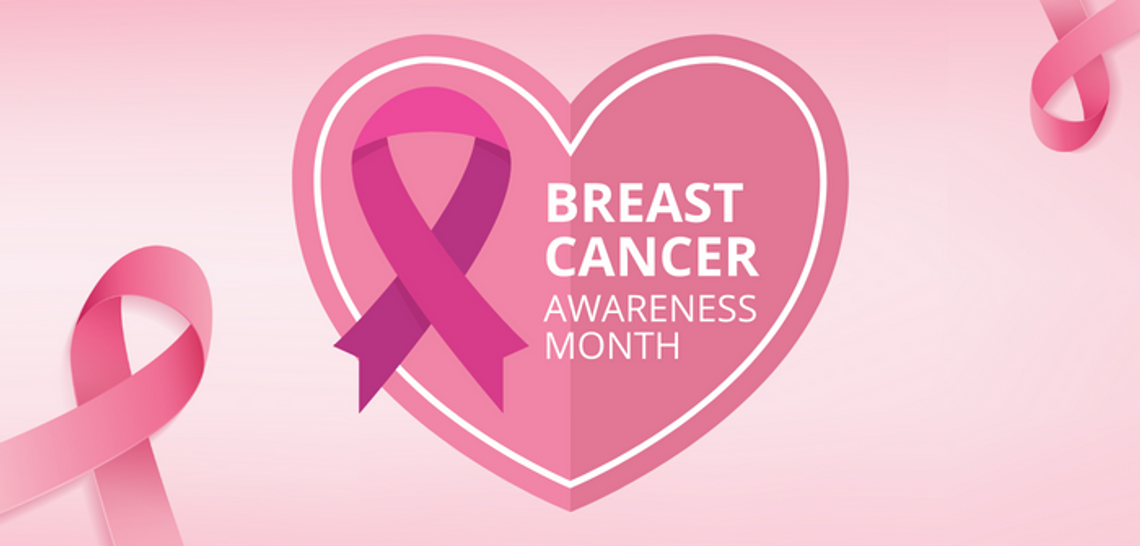By Megan Wehring
While October is considered to be Breast Cancer Awareness Month, experts say that people should think about breast cancer year-round.
According to the American Cancer Society, breast cancer is the most common cancer in women in the United States, except for skin cancers. It is about 30% (or one in three) of all new female cancers each year.
The American Cancer Society's estimates for breast cancer in the United States for 2022 are: About 287,850 new cases of invasive breast cancer will be diagnosed in women; about 51,400 new cases of ductal carcinoma in situ (DCIS) will be diagnosed; and about 43,250 women will die from breast cancer.
Breast cancer mainly occurs in middle-aged and older women. The median age at the time of breast cancer diagnosis is 62 – half of the women who developed breast cancer are 62-years-old or younger when they are diagnosed. A very small number of women diagnosed with breast cancer are younger than 45.
There is no set time when it’s time to start thinking about getting screened for breast cancer as it’s not a one-size-fits-all answer, according to Cassie Connerty, clinical director of the High-Risk Breast Clinic at Baylor Scott & White.
The conversation about starting screenings can start in the mid-20s in some individuals and as late as the 40s in others, Connerty explained – but it’s all dependent on family history.
“Having that conversation with either their primary care provider or OB-GYN, those are the two kinds of gateways that patients start to really understand their breast health … and seeing if there is a big family history of breast cancer not only on their mom’s side – a lot of people think it’s only influenced on their mom’s side – but their dad’s side too,” Connerty said. “Understanding that information can sometimes allow patients to start screening mammograms a lot earlier than 40.”
An average male has about a 1% lifetime chance that he will get breast cancer.
“We know that there are gene mutations,” Connerty said. “So, genes that we all have but are different based on our mom and dad. Different, but genes that we all have. We know that some of these genes, if they are mutated or are not working correctly, can increase the risk of breast cancer in males and females.”
The first step, Connerty explained, is for patients to understand their family history and start that conversation with their primary care provider or OB-GYN.











